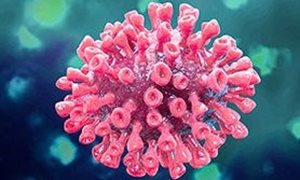30 August 2019
American tegumentary leishmaniasis is a vector-borne parasitic disease caused by Leishmania protozoans. Innate immune cells undergo long-term functional reprogramming in response to infection or Bacillus Calmette-Guerin (BCG) vaccination via a process called trained immunity, conferring non-specific protection from secondary infections. They demonstrate that monocytes trained with the fungal cell wall component b-glucan confer enhanced protection against infections caused by Leishmania braziliensis through the enhanced production of proinflammatory cytokines. Mechanistically, this augmented immunological response is dependent on increased expression of interleukin 32 (IL-32). Studies performed using a humanized IL-32 transgenic mouse highlight the clinical implica-tions of these findings in vivo. This study represents a definitive characterization of the role of IL-32g in the trained phenotype induced by b-glucan or BCG, the results of which improve the understanding of the molecular mechanisms governing trained immunity and Leishmania infection control.

American tegumentary leishmaniasis is a vector-borne parasitic disease caused by Leishmania protozoans. Innate immune cells undergo long-term functional reprogramming in response to infection or Bacillus Calmette-Guerin (BCG) vaccination via a process called trained immunity, conferring non-specific protection from secondary infections. They demonstrate that monocytes trained with the fungal cell wall component b-glucan confer enhanced protection against infections caused by Leishmania braziliensis through the enhanced production of proinflammatory cytokines. Mechanistically, this augmented immunological response is dependent on increased expression of interleukin 32 (IL-32). Studies performed using a humanized IL-32 transgenic mouse highlight the clinical implica-tions of these findings in vivo. This study represents a definitive characterization of the role of IL-32g in the trained phenotype induced by b-glucan or BCG, the results of which improve the understanding of the molecular mechanisms governing trained immunity and Leishmania infection control.
Related news items

Trained immunity: a tool for reducing susceptibility to and the severity of SARS-CoV-2 infection
17 February 2021 In a review in Cell Mihai Netea, Frank van de Veerdonk, Reinout van Crevel and Jorge Dominguez Andres propose that induction of trained immunity by whole-microorganism vaccines may represent an important tool for reducing susceptibility to and severity of SARS-CoV-2. go to page
Invasive fungal infections in influenza and COVID-19
8 July 2020 The Aspergillus fungus is found in the lungs of many COVID patients. A parallel occurs with influenza patients, who often develop a serious fungal infection. Although such a serious fungal infection seems to occur less frequently in COVID-patients, alertness remains necessary, go to page
Trained immunity: a tool for reducing susceptibility to and the severity of SARS-CoV-2 infection
29 June 2020 In a review in Cell Mihai Netea, Frank van de Veerdonk, Reinout van Crevel and Jorge Dominguez Andres propose that induction of trained immunity by whole-microorganism vaccines may represent an important tool for reducing susceptibility to and severity of SARS-CoV-2. go to page.aspx?width=2120&height=1414&ext=.jpg&type=BlockColumn1Zoom1)
New insight into the effect of hydroxychloroquine undermines its use in corona
11 June 2020 Researchers at Radboud university medical center have discovered an as yet unknown effect of hydroxychloroquine. Raphael Duivenvoorden was interviewed in the program Op1 at NPO1 to elaborate on the findings. It seems unlikely that chloroquine has beneficial effect in corona infections. go to page
Terrestrial bacteria can grow on nutrients from space
26 May 2020 Researchers from the Radboudumc describe in an article in Astrobiology that bacteria can survive on an 'extraterrestrial diet', which affected their pathogenic potential. go to page
